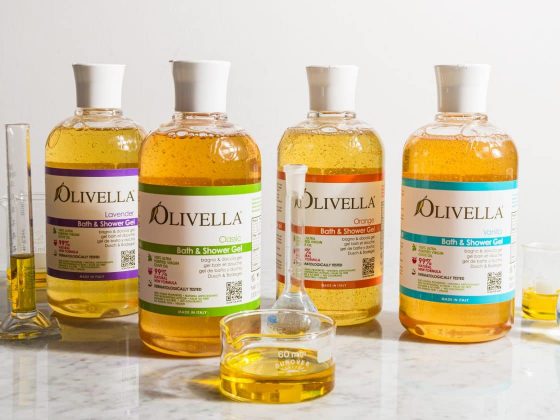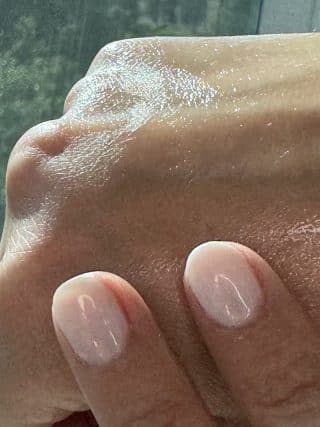By Ali Capron
Facial oils have taken over the beauty industry in many respects, with a wide array of luxury and more affordable oils being used by celebrities and influencers ranging from Elizabeth Hammer to Kate Bosworth. One important reason in the rising popularity of oils is the wide array of studies showing that facial oil neither increases oiliness nor causes breakouts. In fact, many studies – including one study by the Society for General Microbiology – showed that essential oils (in this case lavender) had powerful antifungal effects. Each oil wields its particular brand of magic so if you are thinking of adding facial oil to your daily routine, these are a few of the most beneficial for the face:
CBD
CBD oil – which contains cannabidiol, the main non-psycho-active chemical compound extracted from cannabis and hemp plants — is a major trend, as much in the food as in the health and beauty sectors. Research has shown that this oil can be useful to battle acne, aging, and skin sensitivity. One study by the American Society for Microbiology found that cannabidiol is effective at killing a wide range of bacteria, including those that have become resistant to some antibiotics. CBD oil contains anti-inflammatory and antioxidant properties as well, making it useful for tackling a wide range of problems, including redness and reactivity.
Olive Oil
Olive oil is a crucial component of the Mediterranean Diet, since it is rich in Omega-3 essential fatty acids. Doctors often recommend consumption of this oil for a longer and healthier life, since it promotes good heart, skin and brain health. Some components of olive oil are also used in skincare. Squalene (and its derivative, squalane) is a component of many top facial oils, creams, and serums. Squalane is a natural emollient that essentially ‘locks’ moisture into your skin, battling dry patches and fine lines. Because it is antioxidant-rich, it is an excellent way to fight the free radicals that cause skin to lose elasticity and firmness, and to form lines and wrinkles.
Marula Oil
Marula oil – another trending ingredient in popular facial oils – is obtained from the marula tree, which grows abundantly in Africa. Marula oil contains a high quotient of Omega 9 and Omega 6 essential fatty acids, which deeply moisturize skin, improve elasticity, and reduce skin reactivity. Marula oil also contains antioxidants like Vitamin E, phenolic compounds, and flavonoids.
Jojoba Oil
Jojoba is one oil that is as popular in haircare products as it is in skincare. It is rich in Vitamin E and B-complex vitamins, which aids in skin repair. Jojoba is also an ideal choice for people with sensitive or acne-prone skin, because it has anti-inflammatory properties. If you do have oily skin by nature, or you are battling pimples and acne, oil will not worsen your condition; quite the opposite. Often, the cause of overactive oil glands in the skin, is deydration. Facial oil can ensure your skin has the right amount of moisture. Jojob oil has emollient properties, so it should ideally be used after your serum – to help ‘trap’ active ingredients in your skin.
Rosehip oil
This oil, extracted from rose hips, are known for their powerful antioxidant quotient. As stated in a study published in the International Journal of Molecular Sciences, “The antioxidant activity of rose hips is due to their content in polyphenols, vitamins C, E, B and carotenoids and these compounds may have synergistic effects.” Rose hips also have an anti-inflammatory effect, said researchers, which is great to keep skin firm and young-looking. Another study published in the same journal showed that many oils – including olive, argan, jojoba, pomegranate, and rosehip oil – have anti-inflammatory and antioxidant effects on skin.
Tea tree Oil
Tea tree oil is a classic choice for people battling acne, since it has antimicrobial properties. Studies have shown that it helps reduce the amount and severity of breakouts, making it as effective as commercial anti-acne products like benzoyl peroxide. This oil is also backed by research as effective against conditions like dandruff, athlete’s foot, and nail fungus.
Studies have shown that plant oils, used for centuries in foods and on skin, have a wealth of benefits for skin issues. Even if you have oily skin, oils can play an important role in your skincare routine. Make sure to apply your favorite oil last, after cleansing your skin and applying your favorite serum at nighttime. This will lock key ingredients in and ensure your skin is baby-soft when you wake up in the morning.










